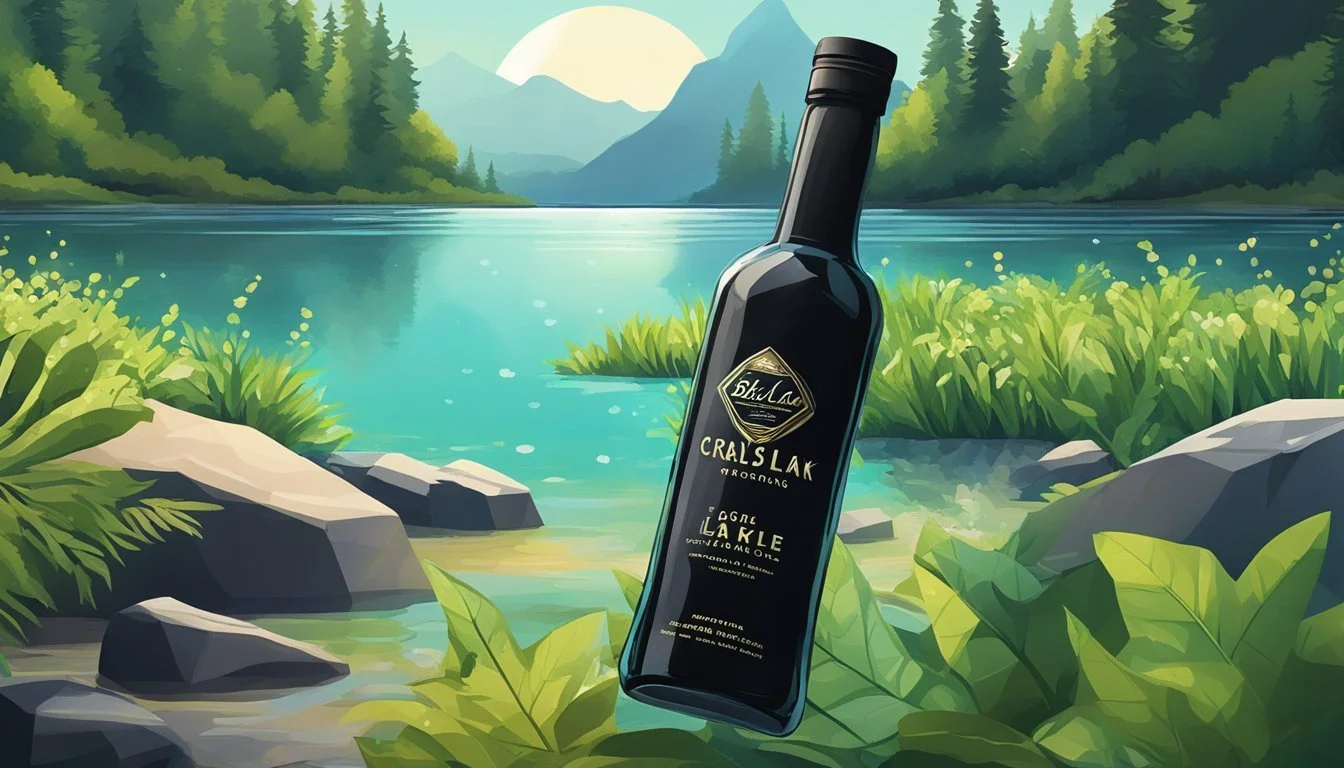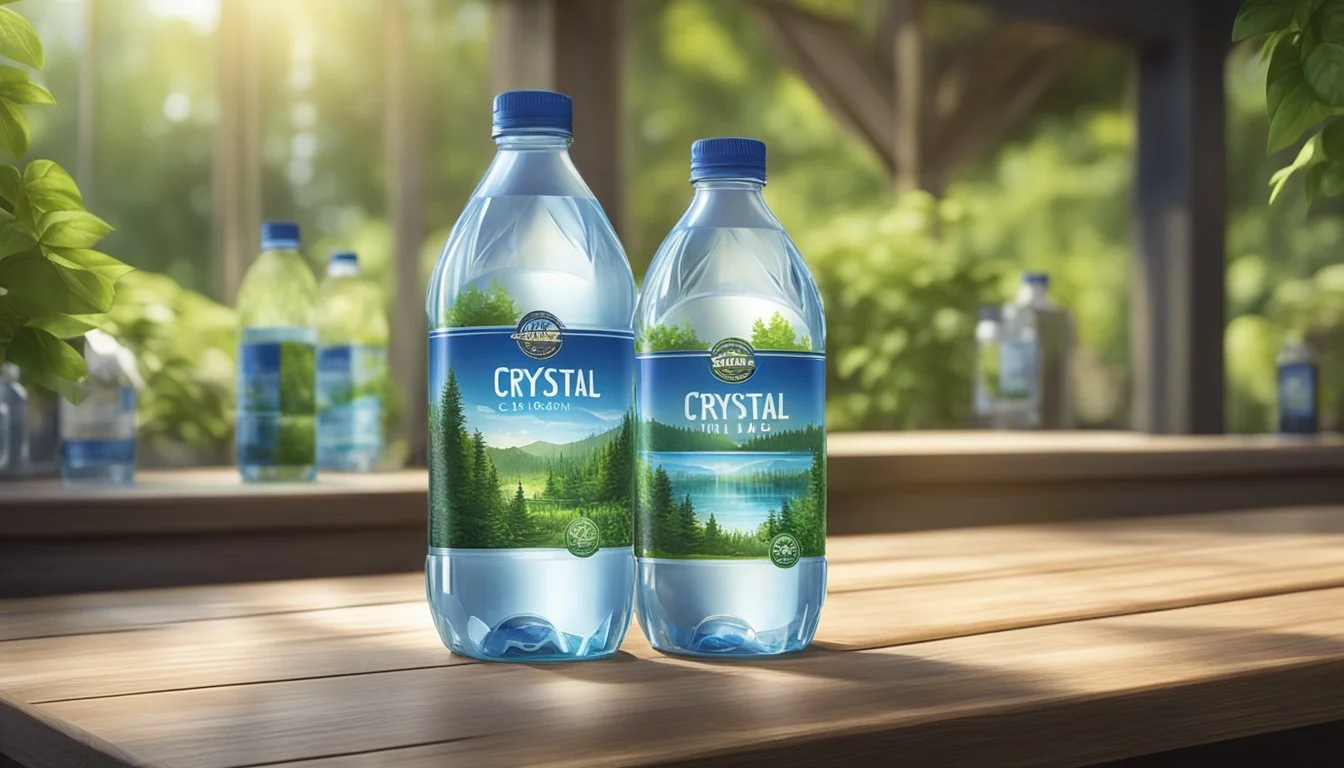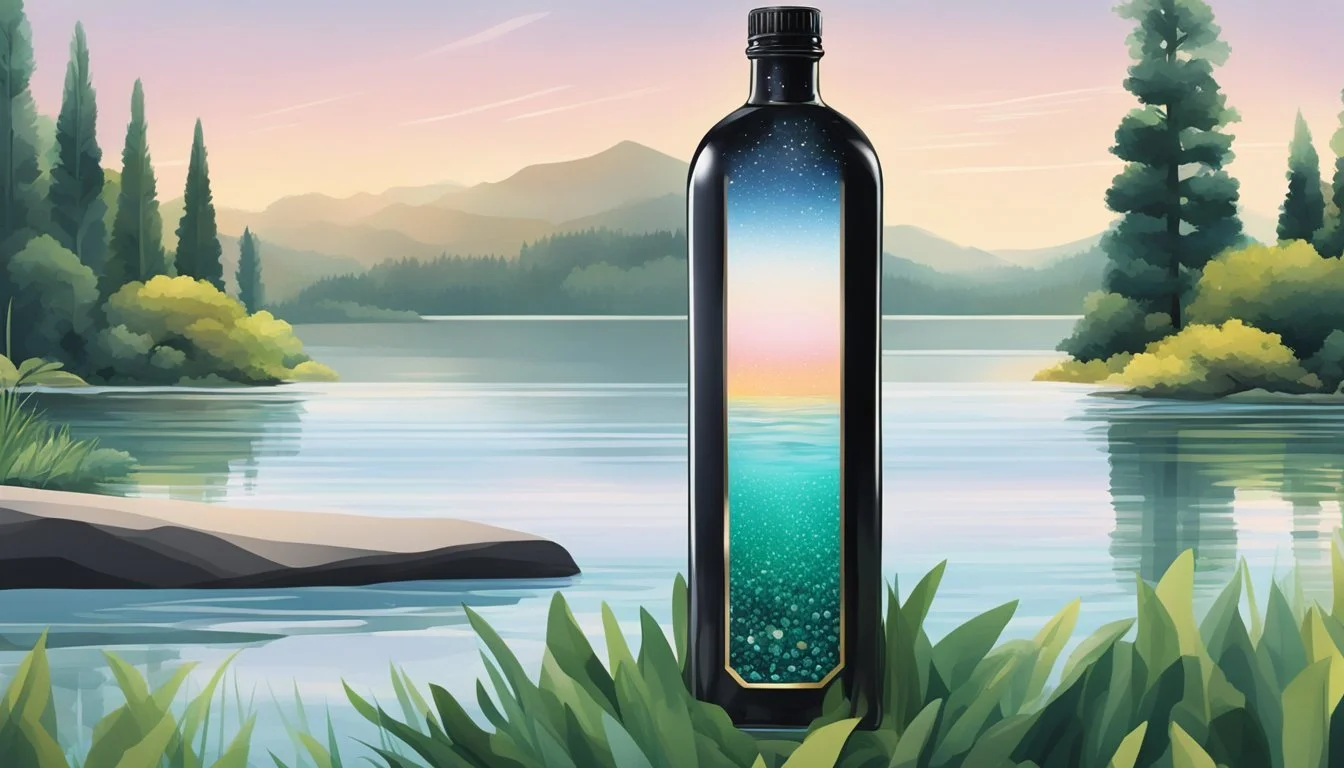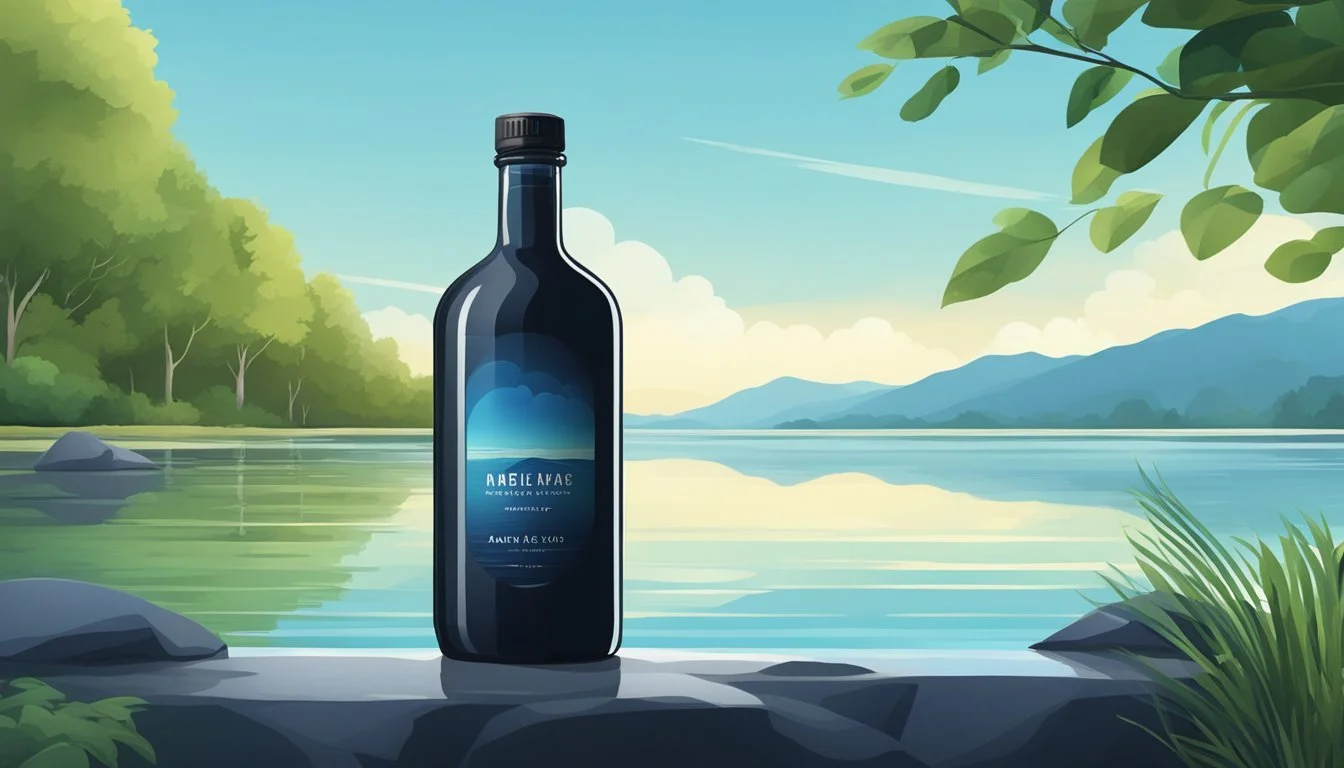Crystal Lake vs. Blk
Which Bottled Water Offers Superior Quality?
When it comes to bottled water, enthusiasts often find themselves deliberating between options like Crystal Lake and blk. water. These two brands are known for their distinct characteristics and target audiences, making the choice not as straightforward as it seems. For those seeking a pure and reliable hydration source with no artificial additives, Crystal Lake often emerges as the better option. Its crisp taste and affordability appeal to a wide variety of consumers.
On the other hand, blk. water stands out significantly with its unique black hue, derived from the infusion of fulvic trace minerals. This unusual attribute garners interest from those curious about potential health benefits and willing to pay a premium price for their water. While blk. may not be everyone's cup of tea, it certainly distinguishes itself in the crowded bottled water market.
In the debate of Crystal Lake vs. blk., the decision hinges on what you prioritize in your bottled water experience. Whether it's the traditional purity of Crystal Lake or the innovative characteristics of blk., each brand offers something unique worth exploring in your hydration journey.
Unveiling Crystal Lake and Blk
This section explores the company backgrounds, sources, compositions, and unique selling propositions of Crystal Lake and Blk, providing a clear comparison of these two distinct bottled water brands.
Company Backgrounds and Brand Histories
Crystal Lake is known for its commitment to purity and sustainability. The brand was established in the early 2000s with a focus on providing premium-quality spring water sourced from natural springs. It quickly gained a reputation for its eco-friendly practices, including the use of recyclable packaging and conservation-minded water extraction processes.
Blk, on the other hand, entered the market with a unique selling point—the black hue of its bottled water. Founded more recently, Blk captured consumer interest with its bold appearance and claims of health benefits. Blk's infusion of fulvic trace minerals is promoted as a key differentiator in a crowded market.
Source and Composition
Crystal Lake sources its water from pristine natural springs, ensuring a clean and refreshing taste. The composition of Crystal Lake water includes essential minerals like calcium and magnesium, naturally occurring in the water's source. This natural mineral content contributes to the water's taste and purported health benefits.
Blk is notable for its infusion of fulvic acid, a complex organic acid with a mixture of trace minerals. This infusion not only gives Blk its distinctive black color but also claims to provide antioxidant and nutrient absorption benefits. Blk water is processed to maintain the purity of these minerals while also ensuring safety and quality for consumption.
Unique Selling Propositions
Crystal Lake markets itself on purity and environmental responsibility. Key selling points include:
Natural spring sourcing: Emphasis on untouched, pure sources.
Eco-friendly packaging: Use of recyclable and biodegradable materials.
Health benefits: Natural mineral content beneficial for hydration.
Blk differentiates itself with:
Distinct appearance: The black hue made possible by fulvic acid.
Health claims: Antioxidant properties and enhanced nutrient absorption.
Premium product positioning: Higher price point validating perceived exclusivity.
Both brands offer distinct features catering to varying consumer preferences, from eco-conscious buyers seeking natural spring water to those intrigued by innovative wellness products.
Water Quality and Safety Standards
When comparing Crystal Lake and Blk bottled water brands, it is crucial to examine their water quality and safety standards, focusing on testing procedures, historical data, regulatory compliance, and certifications.
Testing Procedures and Historical Data
Testing procedures for bottled water ensure contaminants are identified and removed. Both Crystal Lake and Blk follow stringent testing protocols, analyzing for PFAS chemicals, heavy metals, and other toxins.
Crystal Lake adheres to the standards set by the Water Quality Association (WQA). Blk also conducts regular testing, focusing on heavy metal content and ensuring minimal contamination.
Historical data reveal consistent compliance with safety norms by both brands. Crystal Lake, for example, has maintained low levels of contaminants, verified by third-party laboratories.
Regulatory Compliance and Certifications
Regulatory compliance is essential for maintaining water safety. Both brands meet EPA guidelines for drinking water quality, including strict limits on lead content.
Crystal Lake's adherence to WQA standards underscores its commitment to quality. Additionally, the FDA mandates bottled water to follow stringent guidelines similar to those for tap water, with an even stricter limit on lead for bottled water.
Certifications further validate safety claims. Crystal Lake boasts the WQA certification, reflecting its high treatment standards. Blk, although not specified, likely follows similar rigorous practices given its market reputation.
Health and Nutritional Factors
When comparing Crystal Lake and blk. water, it is important to consider their health and nutritional benefits, including mineral content, pH levels, and unique components like fulvic trace minerals.
Mineral Content and Benefits
Crystal Lake water provides a balance of essential minerals such as calcium and magnesium. Calcium is vital for bone health and muscular function. Magnesium supports nerve function and helps in energy production. These natural electrolytes aid in maintaining hydration and perform various biological roles.
blk. water also contains minerals, but its primary appeal lies in its fulvic trace minerals. The overall mineral content is relatively high, and these minerals may enhance nutrient absorption. For consumers seeking specific health benefits from these minerals, blk. water might offer unique advantages.
Mineral Comparison (per Liter):
Mineral Crystal Lake blk. Water Calcium 30 mg 5 mg Magnesium 10 mg 2 mg
pH Levels and Alkalinity
The pH level of water influences its alkalinity and potential health benefits. Crystal Lake water typically has a neutral pH around 7, which makes it suitable for general hydration without altering the body's internal balance.
blk. water, on the other hand, is marketed as alkaline water with a pH ranging from 8 to 9. Proponents claim that alkaline water can help neutralize acid in the bloodstream, improve gut health, and enhance overall hydration. Scientific evidence supporting these claims is limited, so individual experiences may vary.
Fulvic Trace Minerals and Attributes
blk. water contains fulvic acid, a component known for its trace fulvic minerals. These minerals are touted for several potential health benefits, including acting as antioxidants and improving nutrient absorption in the gut. Fulvic acid is also claimed to help with detoxification and boosting immune functions.
Blank does not have fulvic acid. Consumers interested in specialized health benefits offered by fulvic acid might lean towards blk. water. Nonetheless, they should be mindful of the scientific support behind these claims and consider their personal health needs.
Key Compounds:
Fulvic Acid: Present in blk. water, linked to improved nutrient absorption.
Antioxidants: Fulvic minerals may offer antioxidant properties.
Choosing between Crystal Lake and blk. water depends on individual health priorities and preferences related to mineral intake and the touted benefits of fulvic acid.
Tasting Experience
In comparing Crystal Lake and Blk water, flavor and sensory perception are critical. This section will detail the distinct flavor profiles and sensory experiences of each.
Flavor Profiles
Crystal Lake water offers a crisp and clean taste. Many describe it as refreshing, with a slightly sweet undertone. Enhanced by its minimal mineral content, it provides a neutral profile that appeals to a broad audience. Crystal Lake's consistency in flavor makes it a reliable choice for those preferring subtlety.
Blk water, on the other hand, presents a unique experience. Infused with fulvic minerals, it has an earthy and slightly tangy flavor, differing significantly from conventional bottled water. Its black hue doesn't affect the taste but adds a psychological novelty factor that some find intriguing.
Sensory Analysis
Crystal Lake water has a smooth texture. Many water sommeliers note its absence of aftertaste, making it suitable for pairing with meals. The water’s clarity enhances its sensory appeal, contributing to an overall pleasant drinking experience.
Blk water’s sensory attributes include its distinct color and thicker mouthfeel. During taste tests, participants often note the visual impact of its black appearance before tasting. This visual uniqueness can sometimes influence the sensory experience, leading to expectations of a richer flavor profile.
This comparison underscores the importance of individual preference in the tasting experience of bottled water.
Environmental Impact and Sustainability
Crystal Lake and Blk bottled water brands adopt different approaches to address their environmental impact and sustainability. Key areas include packaging and materials, as well as corporate environmental policies.
Packaging and Materials
Crystal Lake primarily uses polyethylene terephthalate (PET) for its bottles. PET is widely used due to its lightweight and recyclable properties but still contributes significantly to plastic pollution. Reusable bottles are an option offered by Crystal Lake, promoting environmentally friendly practices by reducing the need for single-use plastics.
Blk, on the other hand, uses BPA-free plastic and focuses on innovative packaging solutions. They aim to decrease their carbon footprint by incorporating packaging made from recycled materials. While both brands emphasize recyclability, the environmental burden of plastic remains a crucial concern.
Corporate Environmental Policies
Crystal Lake has outlined clear goals for sustainability, including reducing carbon emissions and increasing the use of renewable energy in their production processes. They have implemented water conservation measures and aim to minimize their overall environmental impact.
Blk's corporate policies focus on sustainable sourcing and reduced environmental impact. They invest in environmental initiatives such as plastic waste reduction programs and support for conservation projects. Their commitment to fighting plastic pollution is reflected in their efforts to improve the sustainability of packaging materials and corporate practices.
By comparing these two brands, consumers can make informed choices based on packaging practices and corporate commitment to sustainability.
Consumer-Oriented Aspects
Both Crystal Lake and Blk. offer distinct consumer experiences in terms of availability, accessibility, pricing, and value. The factors discussed below can help determine which brand might be the better choice for various consumer needs.
Availability and Accessibility
Crystal Lake, a popular brand, is widely accessible across numerous grocery stores and retail chains. This ease of access makes it convenient for consumers to find and purchase. This availability often translates to higher customer demand and positive reviews, as consumers can easily replace their stock.
In contrast, Blk. Water, known for its unique obsidian hue, is not as commonly found in local grocery stores. Consumers may need to rely on specialty stores or online platforms to purchase it. The exclusivity can make it exciting for some, but possibly inconvenient for others who prefer to buy their water locally and regularly.
Pricing and Value
Crystal Lake is typically priced within the range of most standard bottled waters. Its pricing reflects its wide availability and lack of specialty ingredients. For regular hydration needs, it offers good value without straining the wallet, making it a preferred choice for budget-conscious consumers.
Blk. Water, given its unique selling points like fulvic trace minerals, commands a higher price point. This premium pricing positions it as a luxury or specialty product. Consumers intrigued by the claimed health benefits of fulvic acid and distinctive appearance might see value in paying more, yet it's essential to weigh this against everyday water needs and budget constraints.
Comparative Analysis
Both Crystal Lake and Blk aim to provide quality hydration, yet they cater to different market segments and offer distinct characteristics in terms of taste and mineral content.
Direct Comparison of Quality and Taste
Crystal Lake is renowned for its clean, crisp taste derived from natural springs. Its water undergoes minimal processing to maintain the pure taste, making it a favorite among those seeking a fresh, neutral flavor.
Blk, on the other hand, is imbued with fulvic trace minerals, giving it a unique black color and earthy taste. This mineral content is touted to offer additional health benefits, but it also results in a slightly heavier mouthfeel compared to Crystal Lake.
Test results often highlight Crystal Lake's refreshing nature, whereas Blk's distinctive flavor profile is an acquired taste. Consumers who prioritize purity might lean towards Crystal Lake, while those interested in potential health benefits might prefer Blk.
Market Positioning and Brand Perception
Crystal Lake targets consumers who value purity and traditional bottled water quality. It's positioned as a premium yet accessible option within the bottled water market, maintaining a strong reputation for reliability.
Blk's market positioning capitalizes on its novelty and health claims. Priced significantly higher at $2-4 per 16-24oz bottle, it positions itself as a luxury health product. Its stark black appearance also serves as a status symbol for consumers willing to pay a premium for perceived health benefits.
Brand perception varies widely; Crystal Lake is viewed as trustworthy and straightforward, whereas Blk is seen as innovative and health-focused. Despite its higher price, Blk has garnered a niche following intrigued by its unique properties and aesthetic appeal.
More About Crystal Lake
Aqua Carpatica vs Crystal Lake: Which Bottled Water is Better?
Cascade Mountain vs Crystal Lake: Which Bottled Water is Better?
Core Hydration vs Crystal Lake: Which Bottled Water is Better?
Crystal Geyser vs Crystal Lake: Which Bottled Water is Better?
Crystal Lake vs Essence pH10: Which Bottled Water is Better?
Crystal Lake vs Proud Source: Which Bottled Water is Better?
Hawaii Volcanic vs Crystal Lake: Which Bottled Water is Better?
Hawaiian Springs vs Crystal Lake: Which Bottled Water is Better?
Ice Mountain vs Crystal Lake: Which Bottled Water is Better?
Icelandic Glacial vs Crystal Lake: Which Bottled Water is Better?
Kirkland Signature vs Crystal Lake: Which Bottled Water is Better?
Liquid Death vs Crystal Lake: Which Bottled Water is Better?
Mountain Valley Spring Water vs Crystal Lake: Which Bottled Water is Better?
Nestle Pure Life vs Crystal Lake: Which Bottled Water is Better?
Poland Spring vs Crystal Lake: Which Bottled Water is Better?
Purely Sedona vs Crystal Lake: Which Bottled Water is Better?
Richard's Rainwater vs Crystal Lake: Which Bottled Water is Better?
San Pellegrino vs Crystal Lake: Which Bottled Water is Better?
Simple Truth vs Crystal Lake: Which Bottled Water is Better?
Solan de Cabras vs Crystal Lake: Which Bottled Water is Better?
Talking Rain AQA vs Crystal Lake: Which Bottled Water is Better?
Whole Foods 365 vs Crystal Lake: Which Bottled Water is Better?
Whole Foods Italian Still Mineral water vs Crystal Lake: Which Bottled Water is Better?








